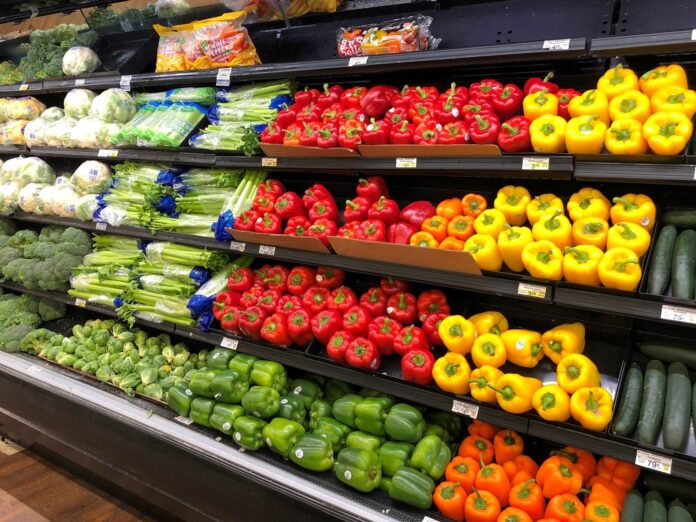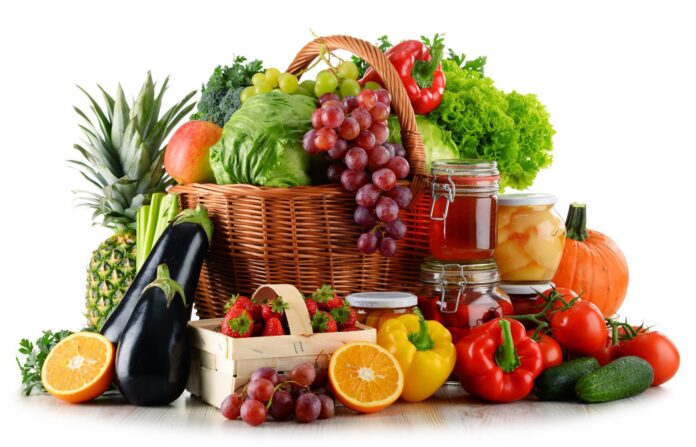
As part of their pursuit of healthier lifestyles, many are making the switch to organic food. Although this move offers numerous advantages, one challenge of organic products can be keeping them fresher for longer.
This blog post will outline practical techniques that can extend the shelf life of organic foods. So whether you’re an experienced supply chain business or a newcomer to handling pesticide-free produce, get ready to discover useful strategies for keeping organic products fresh and delectable!
After reading today’s post, consider visiting Silo to learn more about the technologies and systems that can extend the shelf life of your organic produce.
Understanding the Difference – Organic Vs Non-Organic Foods

First, let’s break down the fundamental differences between organic and non-organic foods:
- Production process ─ Organic foods are grown using natural methods. Organic foods avoid synthetic fertilizers and pesticides, genetically modified organisms (GMOs), and hormones during their production, while non-organic food may involve these elements.
- Nutrient content ─ Studies suggest that organic foods can have slightly higher nutrients than their non-organic counterparts; however, experts consider this difference minimal.
- Environmental impact ─ Organic farming techniques are designed to be more eco-friendly, encouraging biodiversity and soil health, while conventional techniques may have negative environmental consequences.
So why are people switching to organic? Here are the primary reasons:
- Health concerns ─ Increasingly health-conscious people are concerned about the long-term health effects associated with eating non-organic food containing synthetic pesticides and GMOs that could come from non-organic sources, like non-organic fruit juice.
- Environmental sustainability ─ Consumers are becoming more aware of their environmental impact — one way of supporting sustainable farming practices is to purchase organic food.
- Taste ─ Some people believe that organic foods — particularly fruits and vegetables — taste better due to the soil health maintained through organic farming.
7 Ways to Ensure Your Organic Food Products Stay Fresh

Here are a few effective techniques that can help keep your organic foods fresh for longer.
1. Proper storage
Store organic fruits and vegetables in a cool, dry, well-ventilated area in order to maintain optimal freshness. Different produce requires different storage conditions to remain at their freshest; apples and berries should be placed in the refrigerator, while potatoes and onions can be kept cool in dark places outside of it.
2. Use of freshness savers
Products like ethylene gas absorbers can extend the life of your produce by absorbing the natural gas that accelerates ripening.
3. Storing foods separately
Not all foods play well together. Some fruits, like apples and bananas, release gasses as they ripen, speeding up the ripening process of surrounding produce. Store these fruits separately to avoid the premature spoilage of other foods.
4. Regular rotation
Practice the “first in, first out” approach. Use the older products first and keep rotating your stock. This ensures you’re consuming your products while they’re still at their freshest.
5. Preservation techniques
Canning, freezing, and drying can significantly extend the shelf life of your organic food products. For instance, fresh berries can be frozen to use at a later date, while vegetables can be pickled or canned.
6. Avoid overcrowding
When stored in the fridge or a storage bin, ensure that your produce isn’t overcrowded. Overcrowding can restrict airflow and lead to faster spoilage.
7. Proper handling
Handle your organic foods with care to prevent bruising. Damaged areas can become focal points for decay.
Ensuring Organic Food Stays Fresh is Half the Battle

Organic foods offer many health and environmental benefits. It’s important to note that they typically have a shorter shelf life than non-organic foods because they lack synthetic preservatives.
However, the techniques we’ve discussed — proper storage, use of freshness savers, regular rotation, and preservation methods — can considerably extend the freshness of your organic products. Implement these strategies into your routine to reap all of the natural goodness found in organic foods while helping create a healthier planet and a more eco-friendly future.
Strategic Supplier Selection and Partnerships
Selecting the right suppliers is crucial for ensuring the freshness of organic food. Quality begins at the source, and thus, partnering with reliable suppliers who adhere to stringent organic farming and handling practices is essential. These suppliers should not only follow organic standards but also prioritize the freshness and quality of their produce.
Building Strong Supplier Relationships
- Certification and standards compliance ─ Ensure that suppliers are certified organic and comply with national and international organic standards.
- Transparency and traceability ─ Suppliers should provide transparency in their farming and handling practices, allowing for traceability from farm to table.
- Regular quality audits ─ Conduct regular audits of supplier facilities and practices to ensure consistent quality and handling of organic products.
Continuous Education and Consumer Awareness

A significant aspect of keeping organic foods fresh extends beyond supply chain management to the end consumers. Educating consumers on the proper handling, storage, and consumption of organic foods is vital. This not only helps in maintaining the quality of the food but also reduces food waste.
Strategies for Consumer Engagement
- Informative packaging ─ Use packaging to provide tips on storing and handling different organic products.
- Workshops and online resources ─ Offer workshops or online resources that guide consumers on how to extend the shelf life of organic products at home.
- Social media campaigns ─ Leverage social media platforms to share quick tips, facts, and educational content about organic food preservation.
Integrating these strategies into your organic food business or routine can significantly impact the overall freshness and quality of the products. From careful supplier selection to consumer education, each step plays a pivotal role in ensuring that the organic food that reaches the table is as fresh and nutritious as possible.
Enhancing Shelf Life with Innovative Preservation Methods
Exploring Advanced Preservation Techniques
In addition to traditional methods, embracing innovative preservation techniques can make a significant difference in extending the shelf life of organic foods. These methods often involve new technologies or unique approaches that are specifically tailored to handle the delicate nature of organic produce without compromising their quality or nutritional value.
Cutting-Edge Methods to Consider
- Cold chain logistics ─ Implementing an unbroken cold chain from farm to consumer is critical. This involves using refrigerated transport and storage facilities to maintain a constant, low temperature, thereby slowing down the degradation of organic foods.
- Atmospheric control in storage ─ Advanced storage solutions that control the atmosphere, such as reducing oxygen levels or increasing carbon dioxide in storage units, can significantly delay the ripening and aging process of organic produce.
- Natural preservatives ─ Research and use natural preservatives that can extend shelf life without the need for synthetic chemicals. These could be plant-based extracts or naturally derived compounds that are effective in preventing spoilage.





